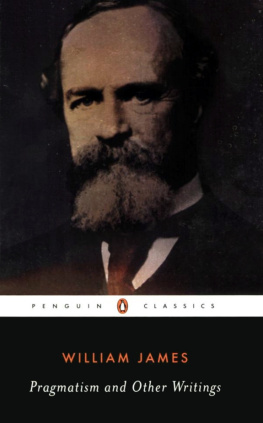Transcriber's Note
The original front cover of the book has been enhanced by the transcriber for the convenience of the reader. The enhanced cover is released into the public domain. The original cover may be found at the end of the book.
A SHORT HISTORY
OF
H.M.S. VICTORY.
GATHERED FROM VARIOUS SOURCES,
AND COMPILED BY
CAPTAIN W. J. L. WHARTON, R.N.
Whose life was Englands Glory.
Shakespeare.
SOLD FOR THE BENEFIT OF THE SEAMEN AND MARINES ORPHAN SCHOOL
AND FEMALE ORPHAN HOME.
Portsmouth:
GRIFFIN & CO., 2, The Hard,
(Publishers by Appointment to H.R.H. Duke of Edinburgh).
1884.
[All rights reserved.]
PRINTED AT THE OFFICE OF THE PUBLISHERS.
The Victory in battle
History of H.M.S. Victory.
The Salvador del Mundo striking to the Victory at St. Vincent.
E VERY Englishman, we imagine, knows that the Victory was the ship which bore Lord Nelsons flag, and on board of which he received his death wound in the moment of triumph over the combined fleets of France and Spain, off Cape Trafalgar; but as very few are aware of her numerous and distinguished services, extending over many years, and preceding that sad yet glorious climax, this memoir of her career has been drawn up, with the hope of making her history from her launch to the present time better known; and that the hundreds who yearly visit her may carry away a record of their visit, to remind them of the classic ground they have been treading, and recall to their recollections some of the splendid deeds of the past, which gained for England the proud title of Mistress of the Seas.
There have been Victorys in the English navy ever since the year 1570, and as each successive ship, from old age or misfortune, has disappeared from the list, another has soon after appeared to take her place.
The ship immediately preceding the existing Victory , was, like her, a first-rate three-decker, carrying 110 guns, and was accounted the finest ship in the service. In 1744 she was the flagship of Admiral Sir J. Balchen, a venerable officer of 75 years of age, who had been called from the honourable retirement of Greenwich Hospital to command a fleet destined to relieve Sir Charles Hardy, then blockaded in Lisbon by a superior French force, under the Count de Rochambault. On returning from the successful performance of this service, the fleet was dispersed in the chops of the Channel by a tremendous gale, on October 4th. The rest of the ships, though much shattered, gained the anchorage of Spithead in safety, but the Victory was never more heard of, though from the evidence of fishermen of the island of Alderney, she was believed to have run on to the Caskets, some dangerous rocks lying off that island, where her gallant crew of about a thousand perished to a man.
In 1765, on the 7th May, was launched from Chatham Dockyard the present Victory which had been built from designs of Sir Thomas Slade, then surveyor of the navy.
Her principal dimensions are as follows:
| feet. | ins. |
| Length from figure head to taffrail | 226 | 6 |
| Length of keel | 151 | 3 |
| Length of gun-deck | 186 | 0 |
| Extreme beam | 52 | 0 |
| Depth of hold | 21 | 6 |
| Tonnage | 2162 | tons. |
Her armament was in 1778
| Lower deck | 30 | long 32-pounders. |
| Middle deck | 30 | long 24-pounders. |
| Main deck | 32 | long 12-pounders. |
| Upper deck | 12 | short 12-pounders. |
| 104 | Guns. |
In 1793 she had four 32-pr. carronades substituted on is 2515 lbs., or more than twice that of the Victory .
Not including one that only fires aft.
As it happened, in 1765 England was at peace with all the world, so the Victory lay quietly at her moorings at Chatham for 13 years, but in 1778, when war with France became imminent, she was commissioned by Captain Sir J. Lindsey on 15th March, and on Admiral Hon. Augustus Keppel being appointed to the command of the Channel Fleet he selected her as his flagship, and she was sent round to Portsmouth, where, on May 16th, she hoisted his flag. On the 7th June Keppel sailed from St. Helens, with 21 sail of the line, 3 frigates, and 3 sloops, having Sir Robert Harland and Sir Hugh Palliser as his Vice-Admirals. His position was a peculiar and delicate one, as war was not yet declared, though all chance of peace being maintained was at an end, but it was known that large and rich fleets of merchantmen from our East and West Indian possessions were on their way home, and it was unadvisable to allow any French frigates to cruise at large and carry intelligence of their whereabouts to Brest; besides this, Admiral Byron with a small squadron was on the point of sailing to reinforce our fleet on the American coast, and Keppel was expected to cover his path. Under these circumstances, when two French frigates hove in sight on the 17th June, Keppel determined to detain them; one, the Licorne, submitted after firing one broadside, but the other, the Belle-Poule, attempted to escape, was pursued, and after a long chase, brought to action by the Arethusa, Captain Marshall. The two frigates were nearly equal in force, and after one of the most desperate contests on record, the fight terminated by the Belle-Poule drifting amongst the rocks of her own coast, leaving the Arethusa a dismantled hulk, to be found by the Valiant, and towed home. This action is perpetuated in the well-known sea song, the Saucy Arethusa.
From the Licorne, Keppel learnt the unexpected and unpleasant intelligence that the French fleet in Brest amounted to 32 sail of the line and 12 frigates; as his own only numbered 21, prudence dictated a return for reinforcement, and he very unwillingly turned his back on France, anchoring at St. Helens on the 27th of June, and detaining another French frigate, the Pallas, on his way.
On the 10th of July, war being now declared, he again sailed, with 25 sail of the line, and was joined off Plymouth by 5 more, making his total force 30 of the line and 4 frigates; with these he now proceeded in search of the French Admiral DOrvilliers, who, with 32 ships of the line and many frigates, had left Brest a few days before, hearing that the expected British merchant fleets were at hand. The object of the French was, of course, the capture of these rich prizes, and they naturally wished to avoid a meeting with the British men-of-war before this was accomplished. On the other hand, the English longed for the battle, as the shortest and safest mode of saving their convoys. So when the two fleets sighted one another on the 23rd, the French, being to windward, did their best to avoid an engagement, and held their wind; on which Keppel finding he had no chance of overtaking them if he kept his line of battle, hoisted the signal for a general chase, and kept it flying.
Thus for four days were both fleets working to windward, during which, two French line of battle ships were cut off, but from their superior sailing escaped capture. Keppel hoped that DOrvilliers would bear up to their rescue, but the wily Frenchman knew that if he did, he would have to give up all hopes of his prize, and preferred that his stray vessels should trust to their heels, which as we have seen, bore them in good stead on this occasion. However, this made the two fleets numerically equal, and, on the forenoon of July 27th, being then some 100 miles west of Ushant, the joy in the British fleet was excessive, when they found that a shift of wind brought them into such a position that an engagement was inevitable. The French still tried to evade the fight, and put about on the other tack, bringing the heads of the two lines pointed in nearly opposite directions, and in this way the British van, commanded by Sir R. Harland, came in action with the French centre, and standing on until close to their line, ran along it to leeward. The rest of the fleet followed, taking their positions in the line as quickly as they could, the Victory being in about the centre.












